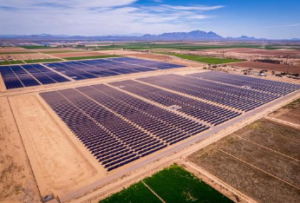In an era of increasing global awareness about environmental, social, and governance (ESG) issues, sustainability reporting has emerged as a crucial tool for accountability and transparency. While some countries have stepped back from stringent reporting requirements, Australia has held firm, setting itself apart as a global leader. Central to this effort is the Australian Sustainability Reporting Standards (ASRS), which are raising the bar for ESG disclosures and driving progress across industries.
A Global Shift in ESG Reporting
Globally, sustainability reporting is at a crossroads. Economic pressures and political debates have led some countries to relax their ESG disclosure mandates. For instance, in the United States, the Securities and Exchange Commission’s (SEC) climate disclosure rules have faced delays and revisions. Similarly, parts of Europe, despite the EU’s ambitious Corporate Sustainability Reporting Directive (CSRD), are struggling with implementation challenges.
For Australia, its the opposite. Rather than easing requirements, Australia has strengthened its commitment to sustainability reporting. This approach ensures that businesses remain transparent and accountable, even as global regulatory landscapes shift.
The Role of ASRS in Shaping the Future
The ASRS provide a clear roadmap for companies to disclose their environmental and social impacts. These standards align with global frameworks like the Task Force on Climate-related Financial Disclosures (TCFD) and the Global Reporting Initiative (GRI), making it easier for Australian businesses to engage with international investors.
A key feature of the ASRS is its phased implementation approach. Recognizing the varying levels of readiness across industries, the standards are being rolled out gradually, giving companies time to adapt. Large organizations with more resources are expected to comply earlier, while smaller businesses have extended timelines to prepare. This approach balances ambition with practicality, ensuring broad participation without overwhelming smaller enterprises.
Some standout features of the ASRS include:
- Clarity and Consistency: Businesses follow uniform guidelines, simplifying reporting processes and improving stakeholder understanding.
- Materiality Focus: Companies address the most significant ESG issues relevant to their operations and stakeholders.
- Global Integration: The alignment with international frameworks ensures Australian companies can compete globally.
Sustainability in Action: Solar Energy and Energy Efficiency
Australia’s commitment to sustainability isn’t limited to reporting; it’s evident in groundbreaking initiatives across all sectors. Take solar energy, for example. Australia has the highest rate of rooftop solar installations globally, with over 3 million homes now harnessing solar power. Large-scale solar farms, like the Darling Downs Solar Farm in Queensland, contribute significantly to the nation’s renewable energy output, reducing dependence on fossil fuels. Learn more about investing in solar and other renewables here.
Energy efficiency is another area where Australia excels. Programs like the National Energy Productivity Plan (NEPP) aim to improve energy use across industries and households. Companies are adopting energy-saving technologies, such as smart meters and LED lighting, while innovative building designs, like those seen in the Pixel Building in Melbourne, demonstrate how architecture can merge sustainability with functionality. Learn how to implement your own energy efficiency practices here.

What Makes Australia’s Sustainability Efforts Unique
Australia’s leadership in sustainability reporting and initiatives sets a high standard for the rest of the world. Here’s why:
- Ambitious Renewable Energy Goals: Australia’s Renewable Energy Target (RET) aims to generate 82% of electricity from renewable sources by 2030. Projects like the Sun Cable initiative, which plans to export solar energy to Southeast Asia, highlight its bold vision.
- Innovative Circular Economy Practices: Initiatives such as the National Waste Policy Action Plan focus on reducing waste through recycling and reuse, with businesses like Planet Ark leading the charge in circular economy practices.
- Community Engagement: Programs like Indigenous ranger groups incorporate traditional knowledge into modern conservation efforts, demonstrating a unique and inclusive approach to sustainability.
The Path Forward
As climate challenges intensify, the importance of transparent and consistent sustainability reporting cannot be overstated. Australia’s example, exemplified by the ASRS and its broader sustainability initiatives, shows that strong leadership and vision can drive real progress.
While other nations may waver, Australia’s steadfast commitment serves as a reminder: sustainability isn’t just good policy—it’s essential for a resilient and prosperous future. By leading the world in solar energy, energy efficiency, and ESG reporting, Australia is paving the way toward a more sustainable and equitable planet.
At CarbonSuite, we’re proud to be partnering with businesses in Australia and working together to build a sustainable future for us all. Thank you, Australia, for your unwavering commitment to sustainability.
Questions? Contact us

